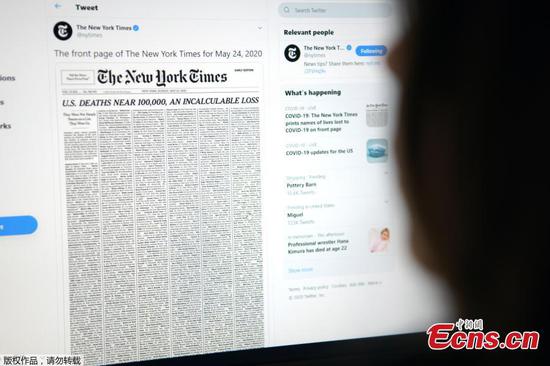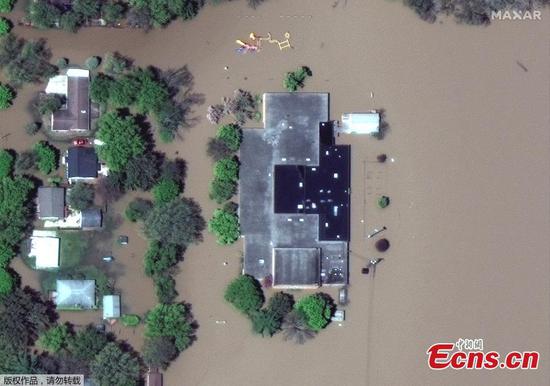A study of 96,000 hospitalized coronavirus patients who received the anti-malaria drug being taken by U.S. President Donald Trump to guard against getting the coronavirus found that those who received the drug were more likely to have abnormal heart rhythms and were more likely to die, according to a study published on Friday in the medical journal The Lancet.
The study's authors recommended that hydroxychloroquine, and the closely related drug chloroquine, shouldn't be used to treat patients outside of clinical trials, as they found it didn't benefit people suffering from COVID-19.
The study is the largest analysis to date of the risks and benefits of treating COVID-19 patients with anti-malaria drugs. It is based on data from 96,032 coronavirus patients from 671 hospitals around the world.
Observational studies like this one can't provide definitive evidence about drug safety and effectiveness. But the authors of the study recommended that the drugs not be used outside clinical trials, and they said carefully controlled trials were urgently needed. Several clinical trials are under way around the world.
Trump has hailed hydroxychloroquine as a "game-changer" for COVID-19. He said last week he was taking it as a preventive measure against the disease. He has since said he is close to finishing his course of treatment and would stop taking the medication in "a day or two".
Past studies also haven't supported hydroxychloroquine's benefit for treating sick patients, and there have been reports of dangerous heart problems associated with its use. The U.S. Food and Drug Administration, or FDA, last month warned against the use of the drug outside hospital settings or clinical trials.
'Another nail in the coffin'
Peter Lurie, a former top FDA official who now heads the Center for Science in the Public Interest, told The Washington Post that the study is "another nail in the coffin for hydroxychloroquine-this time from the largest study ever".
The new study's findings cannot necessarily be extrapolated to people with mild illness at home or those, like Trump, who are taking the anti-malarials as a prophylactic. The president stunned many doctors earlier last week when he said he was taking a pill "every day".
There have been at least 13 studies in recent months on hydroxychloroquine or chloroquine as a treatment for COVID-19 patients. They have included randomized controlled studies and observational analyses encompassing patients on the continuum from mild illness to those near death. Evidence of any benefit, such as viral clearance or improved symptoms, has been almost nonexistent.
Geoffrey Barnes, a cardiovascular specialist at the University of Michigan, said the study's approach and its findings were "striking" in making the case that "the risk with these drugs is real". However, he said that due to the enthusiasm some U.S. citizens have for the drug and The Lancet study's findings, randomized trials are even more important.


















































